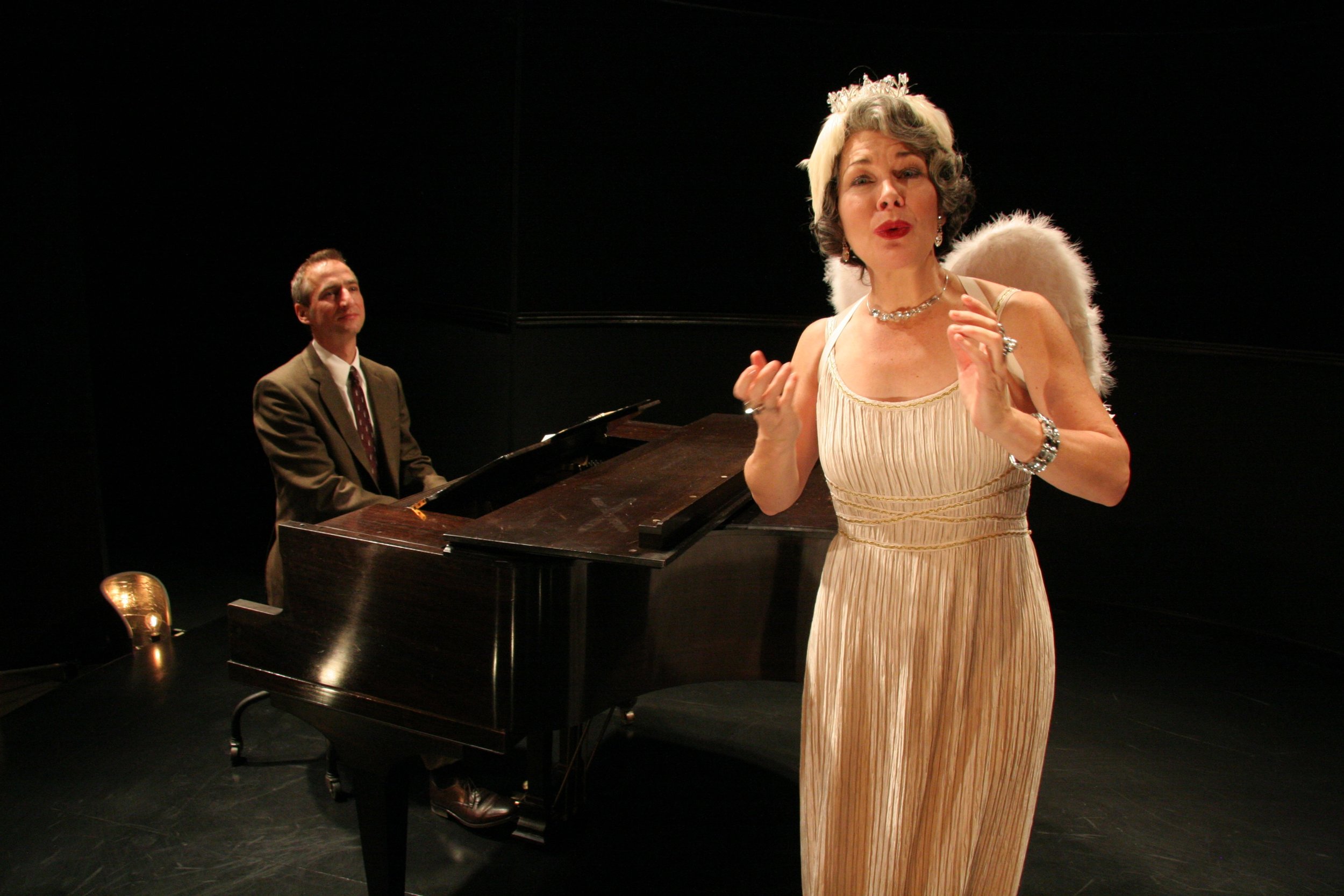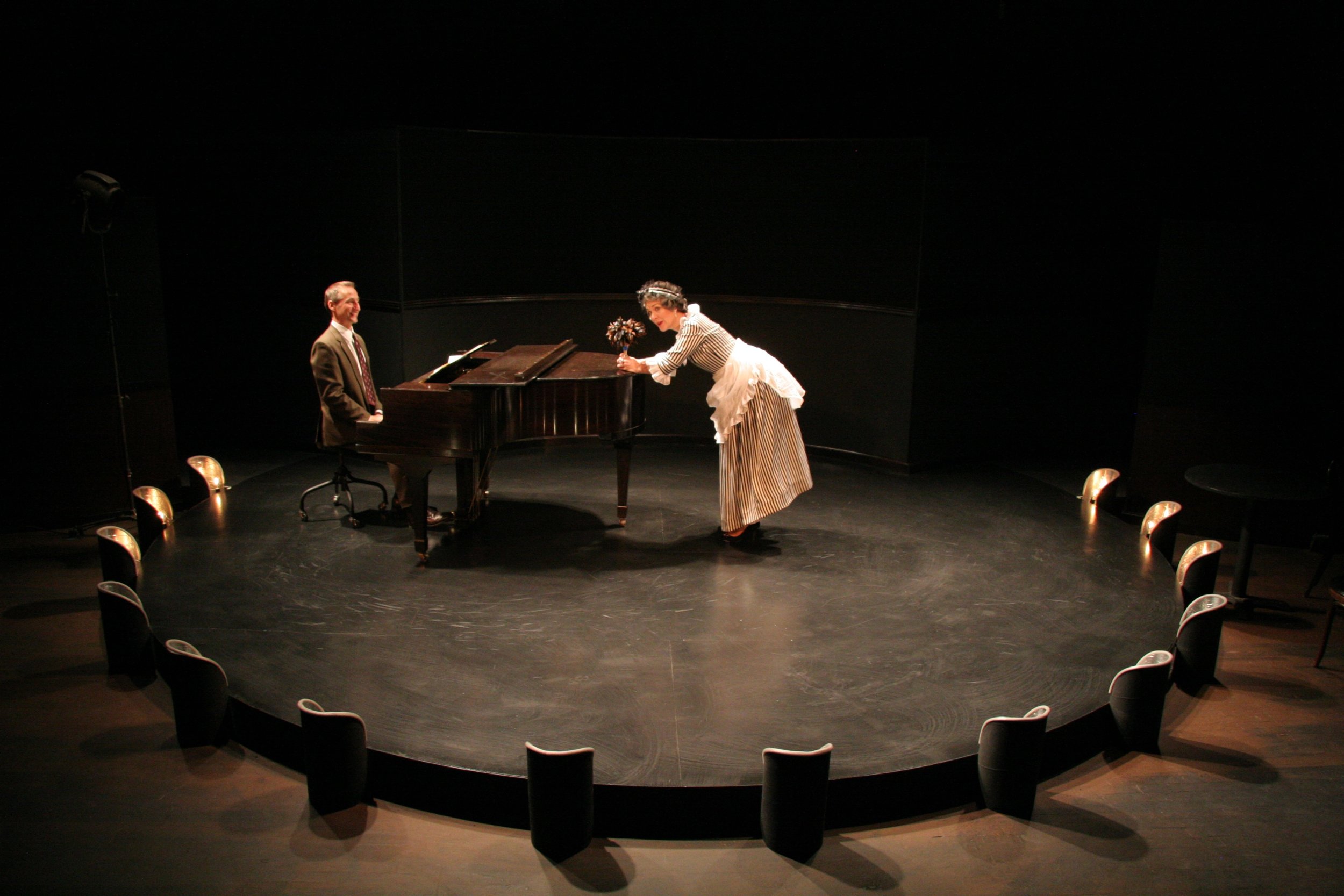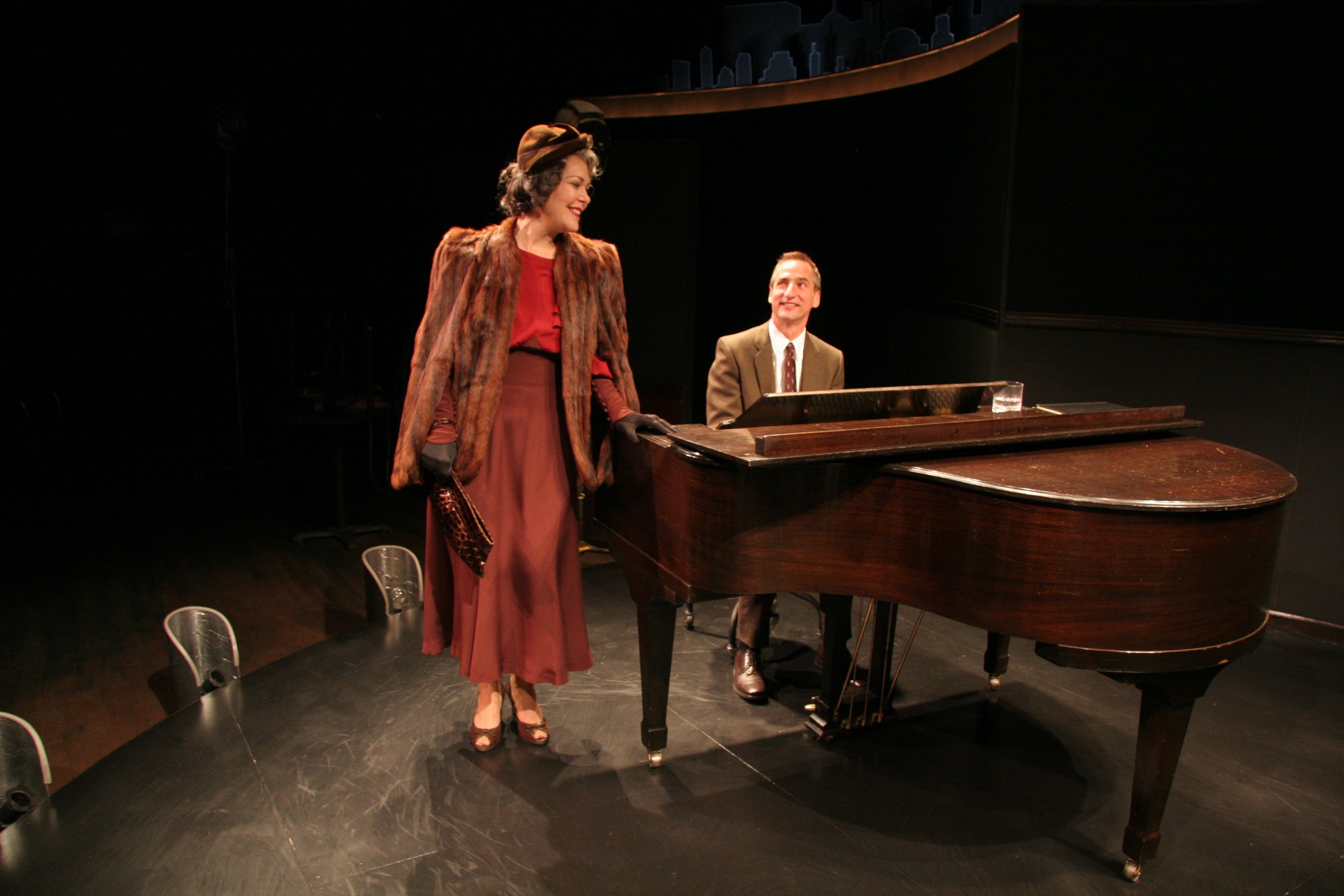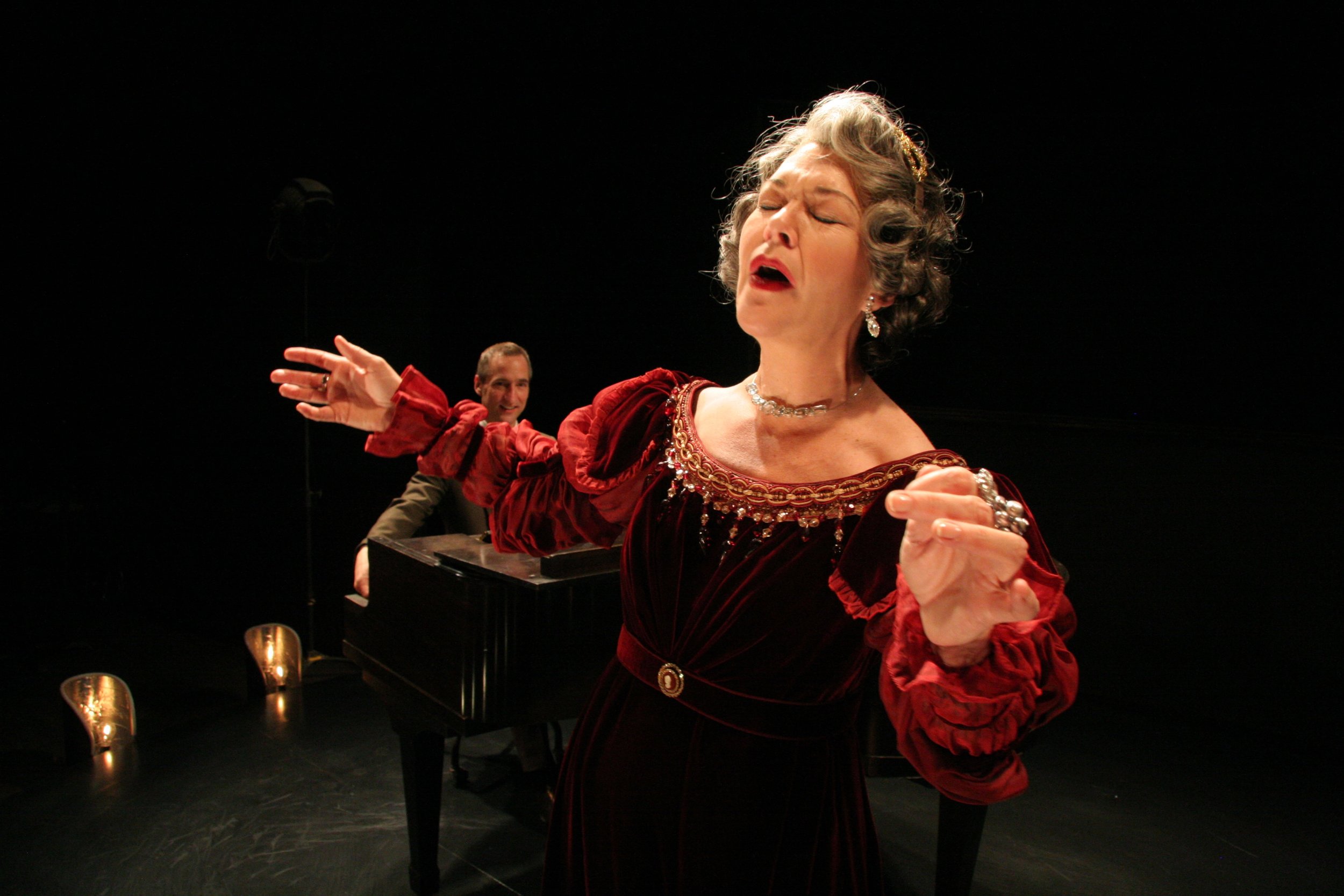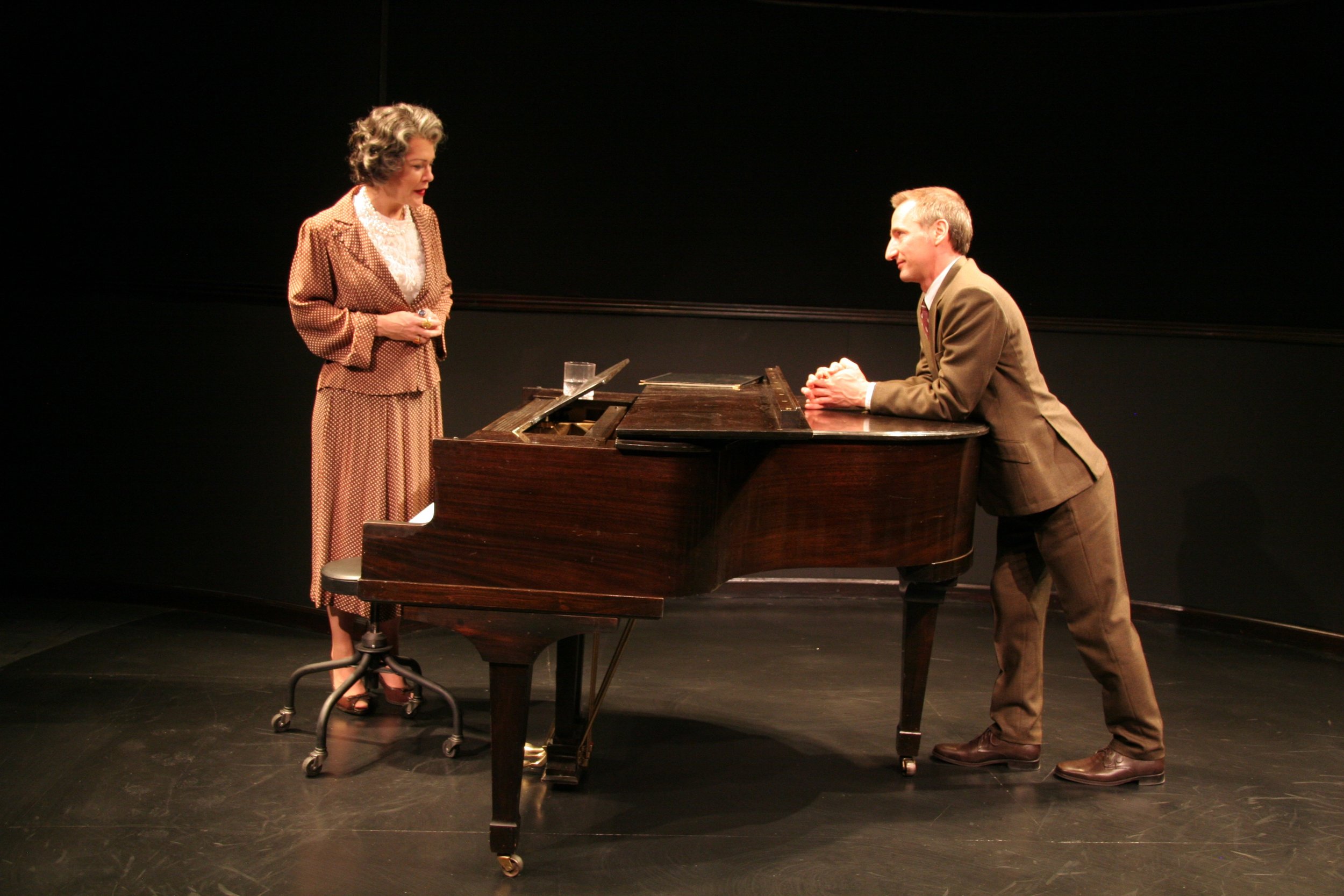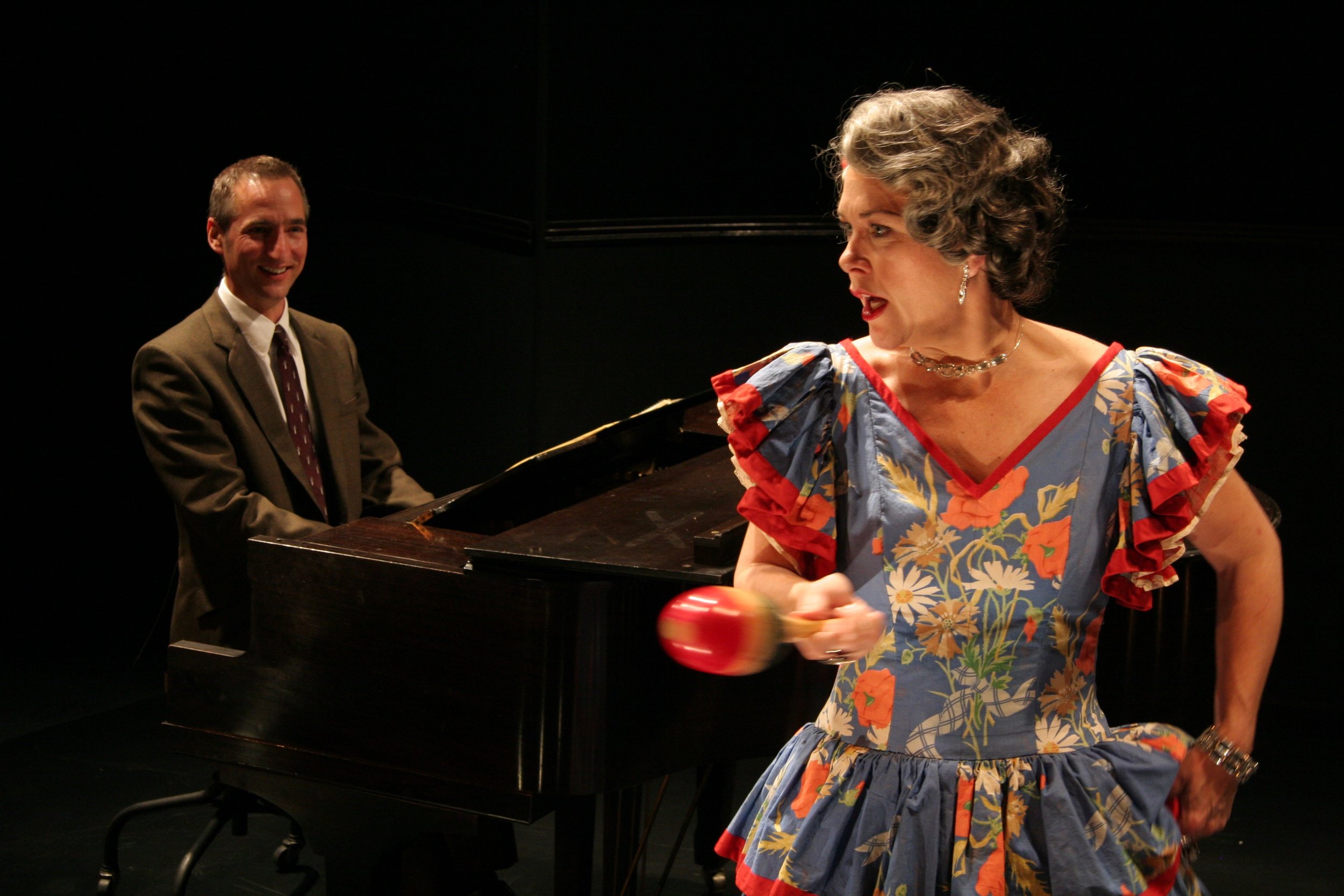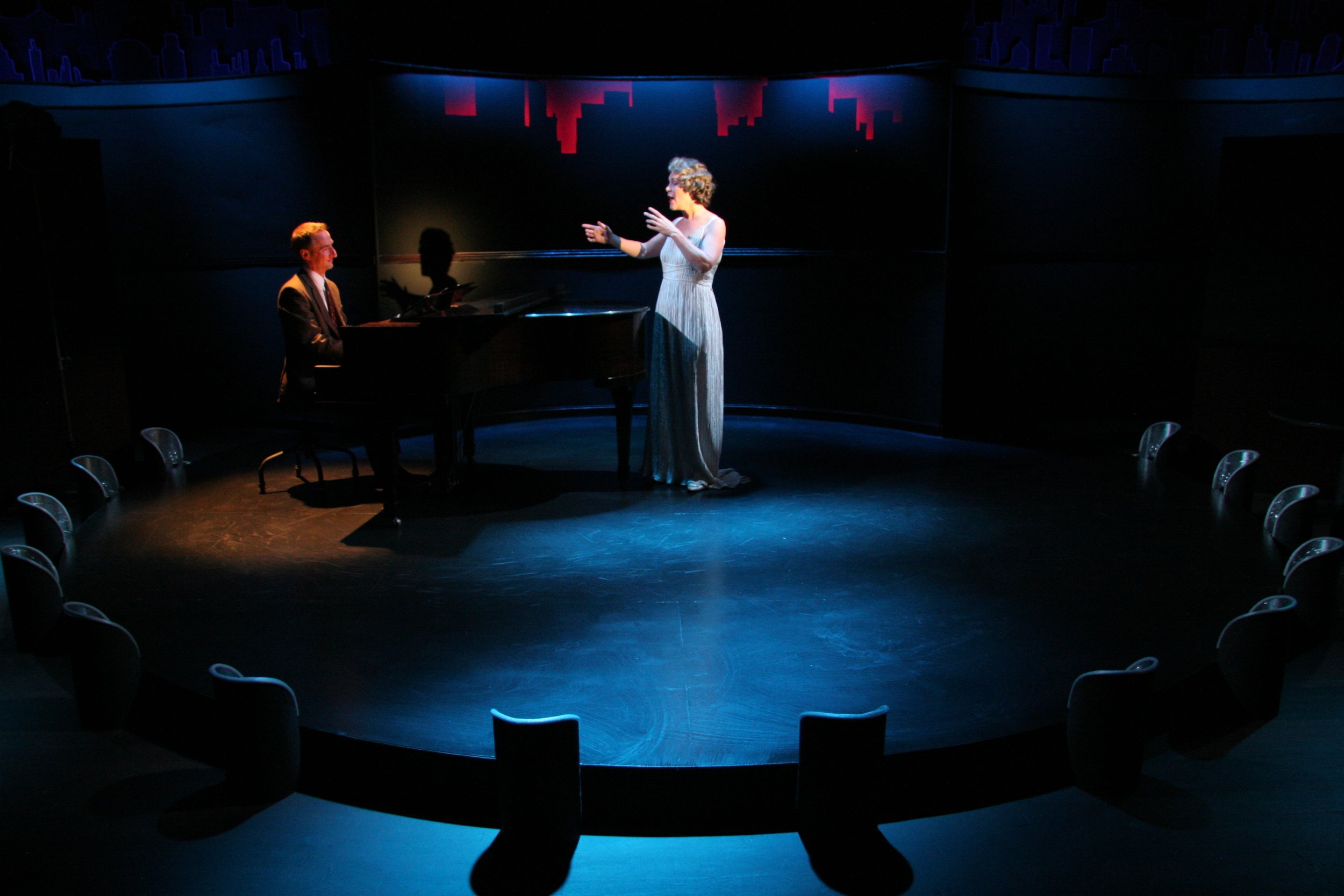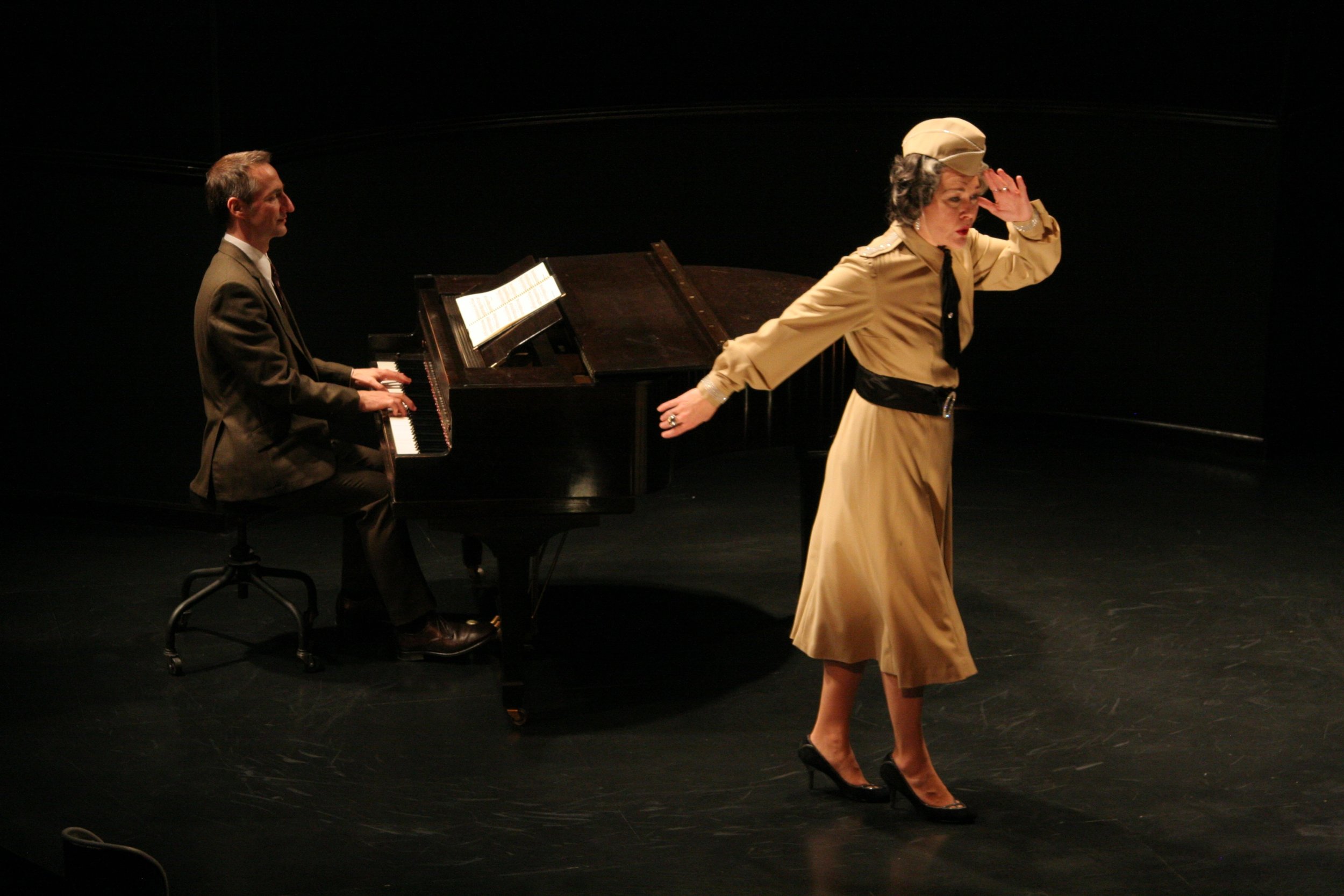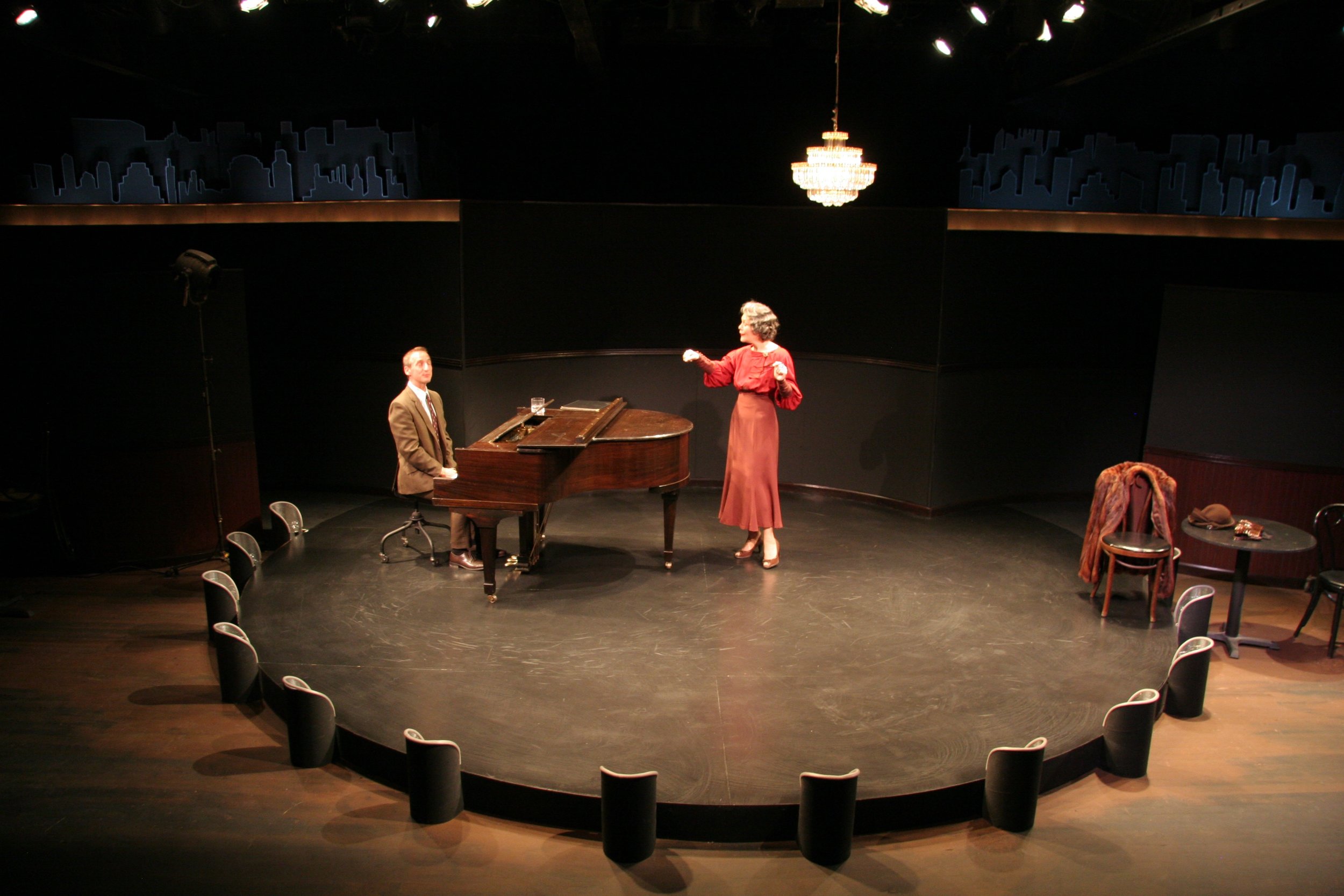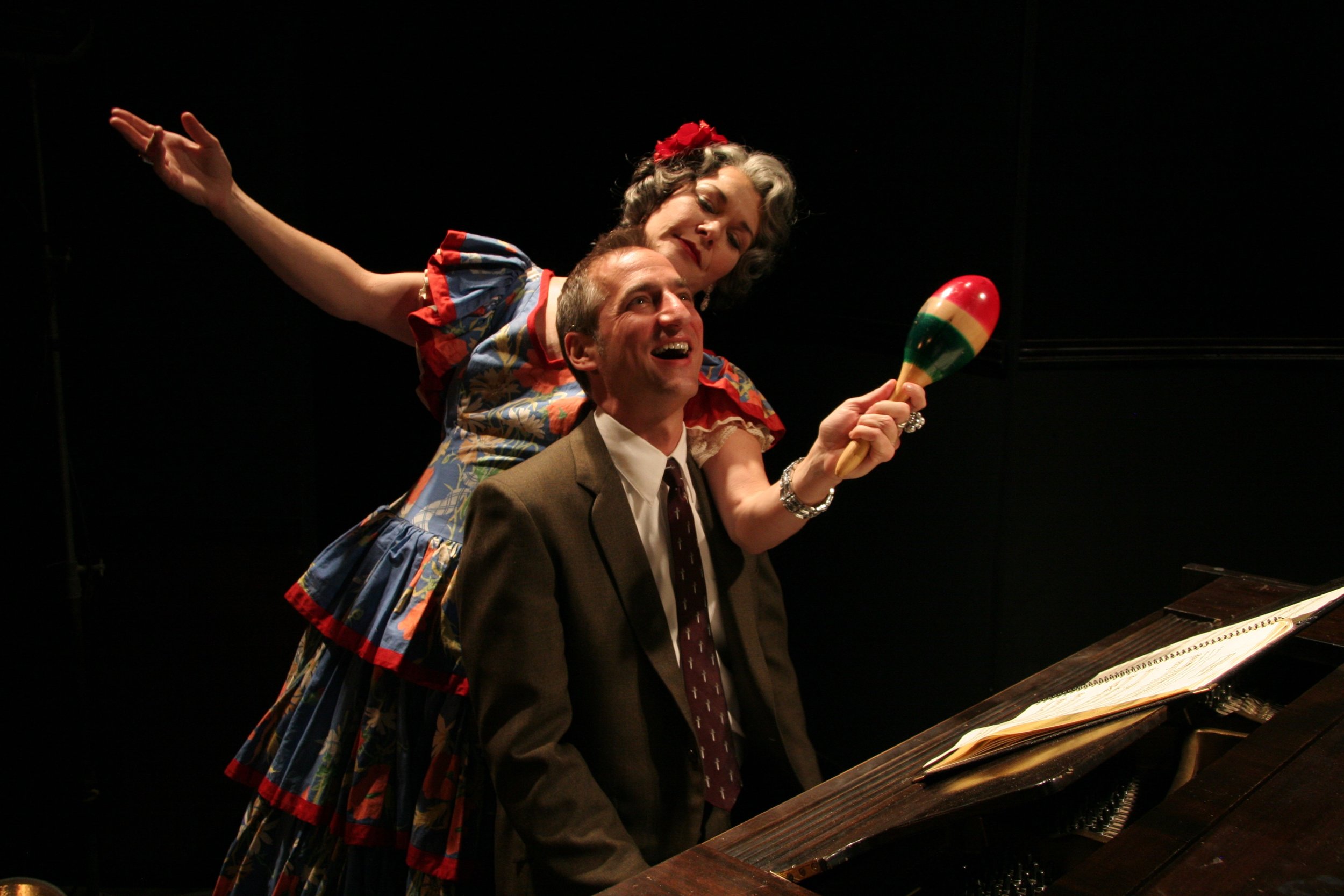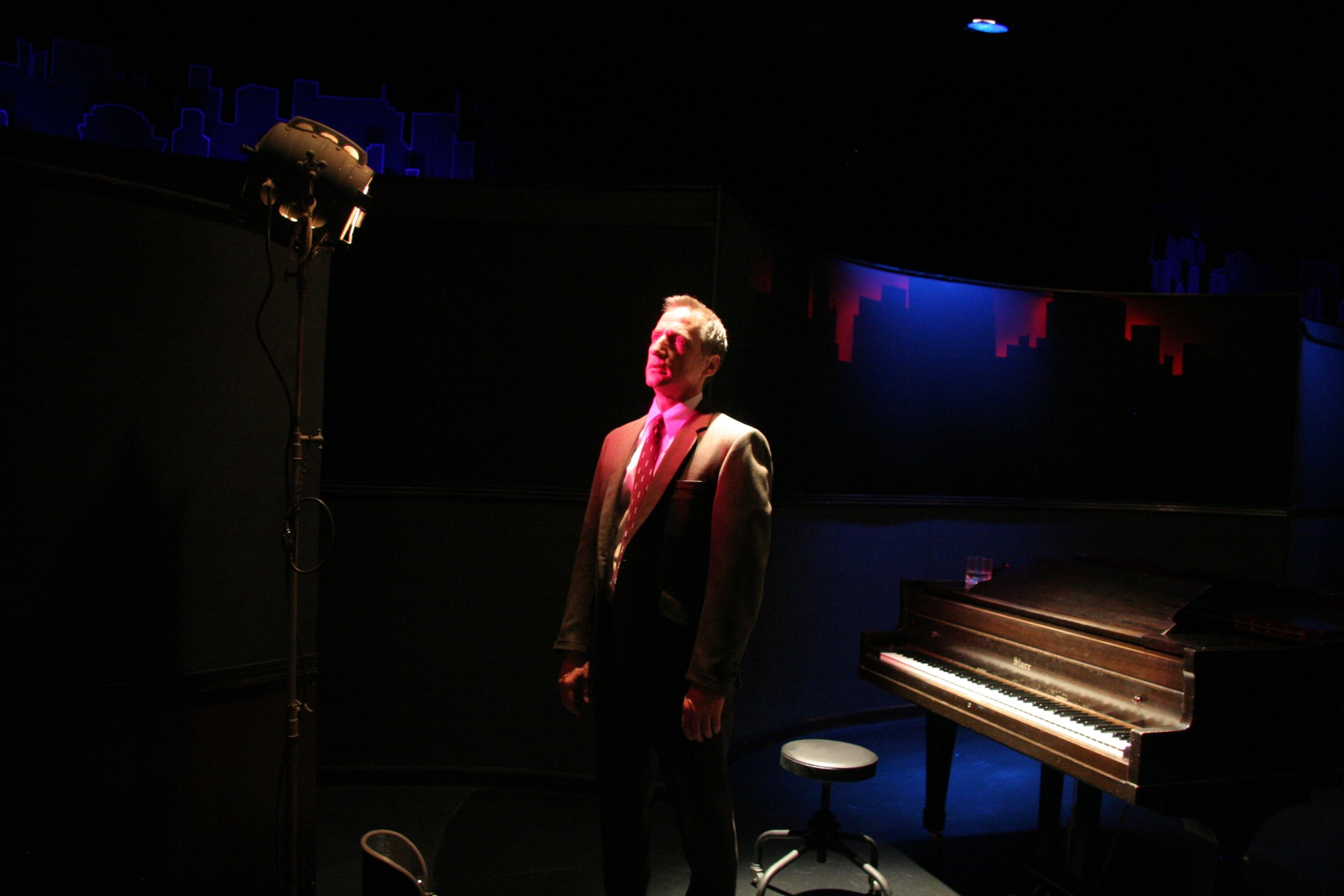SOUVENIR
Set Design: Michael Baltzell | Lighting Design: Rick Martin
Costume Design: Kim Krumm Sorenson | Sound Design: Peter John Still
Scroll down to read Drew's director's note for Souvenir for Boise Contemporary Theater.
About ten years ago, Ira Glass devoted a chapter of his weekly radio show, “This American Life,” to an amateur production of Peter Pan, remarkable for its display of artistic ineptitude. He noted,
When you leave the normal realm of human error, fumble, mishap, and mistake and enter the territory of really huge breakdowns — the more ethereal, specialized realm of ‘fiasco’ — things go so awry that normal social order collapses.
Politeness and discretion disappear. A mob mentality takes over and otherwise civilized people succumb to a primal, Dionysian desire for more disaster, more mayhem, more fodder for mockery. By Glass’ definition, then — and by all firsthand accounts — the public vocal recitals given by Florence Foster Jenkins during the 1930s-1940s qualify as outright fiascos.
Ms. Jenkins, or “Madame Flo,” was born of very wealthy parents in Wilkes-Barre, Pennsylvania, around 1868. Early on, she demonstrated a great passion for singing, but her parents heard no beauty in her voice (to put it mildly) and actively discouraged young Florence from pursuing her dream. In her early teens, she ran away to Philadelphia to try to make her way. There she suffered great hardships and privations until her father, hearing of her misfortune, came and took her back home. She was returning to a life of wealth and social standing — provided that she did not sing. Upon her father’s death, a sizable inheritance, along with her mother’s relative leniency, enabled Florence to take singing lessons again. But it wasn’t until her mother died in 1928 that Florence, at age 60, was completely free to do as she pleased. She made her concert debut to a small but fascinated audience of her society peers at New York’s Ritz-Carlton hotel. Over time, her social connections and well-know philanthropy broadened her audience base and established her recitals as bona fide social events. Her apotheosis as a performer came in 1944, when she performed for an overflow crowd of 2,000 at Carnegie Hall — a concert that sold out weeks in advance.
When playwright Stephen Temperley began researching his play Souvenir, he spoke with people who had attended Madame Flo’s concerts:
While her friends were humoring her, others were there just to laugh. The hot tickets were the last two to three rows, so you could get out easily. But she never doubted her gift. She was oblivious to how bad she sounded.
It’s possible to view Florence’s story as one of self-delusion on an operatic scale, but the generous heart of Temperley’s play invites us all to question whether we do ourselves, or the world, a service in striving for an “objective” view of our own talents. If we truly saw ourselves, or heard ourselves, as the mostly indifferent (at best) outside world does — often focusing only on our shortcomings — would anyone ever accomplish anything truly unique? One of the ingredients of genuine fiasco is greatness of ambition, when people attempt something beyond their grasp. What set Florence Foster Jenkins apart from other bad singers, according to Temperley, was the scale of her folly. “Like the Chrysler building, it commanded attention. She wasn’t crooning some little ditty. She sang difficult, taxing music — and sang it, in fact, terribly.” But in his play, and beneath the fiasco, Temperley helps us to appreciate the passion, integrity, sincerity, and perhaps even beauty, of Madame Flo’s magnificent aspirations. In eschewing what she sees as a modern mania for accuracy, Florence Foster Jenkins gives us the gift of any great artist: a reminder of the reckless folly and inspired lunacy behind any worthwhile endeavor.
-Drew Barr
